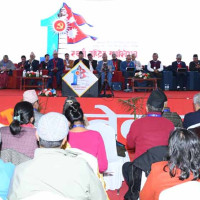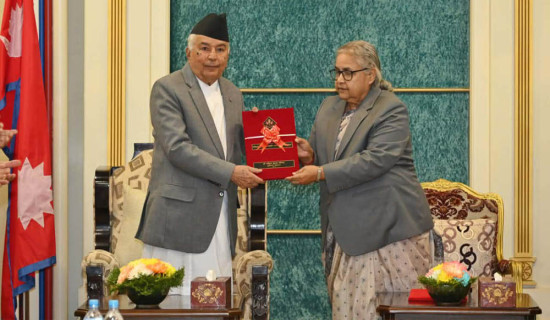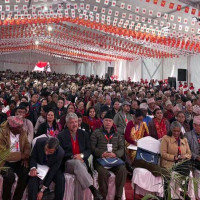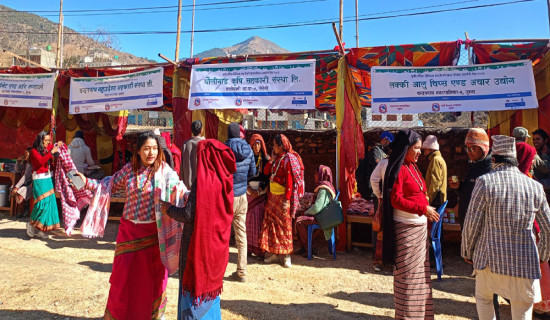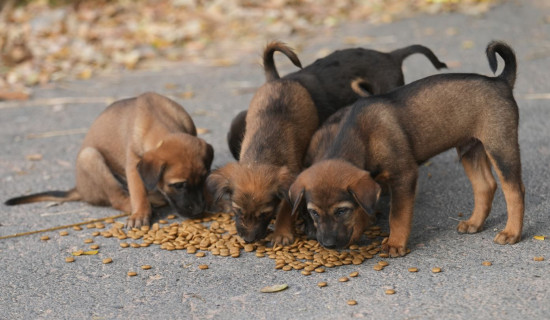- Sunday, 14 December 2025
KMC working to manage 22,000 stray dogs
BY SUSHMA MAHARJAN,Kathmandu, Feb. 8: At least once in life, people walking down the streets in Kathmandu have felt threatened by street dogs. Whether it’s a day or night, walking or riding two-wheeler, the fear of being chased or attacked by strays is a constant concern. These dogs pose risks to public safety, especially when they come in a group aggressively. Sometimes, their attacks have caused serious injuries for pedestrians, requiring hospital treatment.
But, did you know that the Kathmandu Metropolitan City (KMC) is consistently working for the safety and well-being of its denizens along with the welfare of the street dogs? According to the KMC, there are approximately 22,000 stray dogs inside all 32 wards of the metropolis and it has come up with collaborative approaches to control and manage stray dogs.
Dr. Awadesh Jha, head of the KMC’s Agriculture and Animal Husbandry Department, said that the department had launched a neutering and vaccination campaign to control stray dogs. They aim to sterilise 5,800 street dogs by the end of the Fiscal Year 2023/024. According to Jha, approximately 100 personnel were being mobilsed to make it successful.
Controlling stray dogs is not an easy job. Dogs without owners are difficult to tame and care for. At present, the Agriculture and Animal Husbandry Department has coordinated with nine different organisations to sterilize and vaccinate stray dogs in all the wards of the metropolis. They include Sneha Care, Animal Nepal, Vet 4 Ur Pet, Kathmandu Animal Treatment Centre Nepal and others.
Each organisation has deployed a team consisting of at least one veterinary doctor, two assistants, four catchers, a guard and others to identify, vaccinate and neuter street dogs. After identifying the dogs, they are taken to the vet clinic and hospitals for neutering. After operating, they are kept under observation for a day and released in the area they were picked from.
According to the Agriculture and Animal Husbandry Department, it has sterilized 4,938 and vaccinated 11,308 stay dogs in the past few months. Although the target was to sterilize 5,800 dogs by the end of current fiscal year, Dr. Jha said that it would be achieved by the next month.
In the current fiscal year, the metropolis has allocated a total of Rs. 18 million for the campaign. Following it, the department has been providing money at a rate of Rs. 2,500 for neutering one dog and Rs. 200 for vaccinating a dog.
According to Dr. Jha, though the results of the campaign may not be immediately visible, they would be clearly visible within few years. He said, “We are dedicated to reducing the number of street dogs to minimise risks of accidents, bog bites and rabies.” He said that if Kathmandu denizens were facing problems due to stray dogs, they could reach KMC toll-free number – 1180-16600105511-- for assistance.





